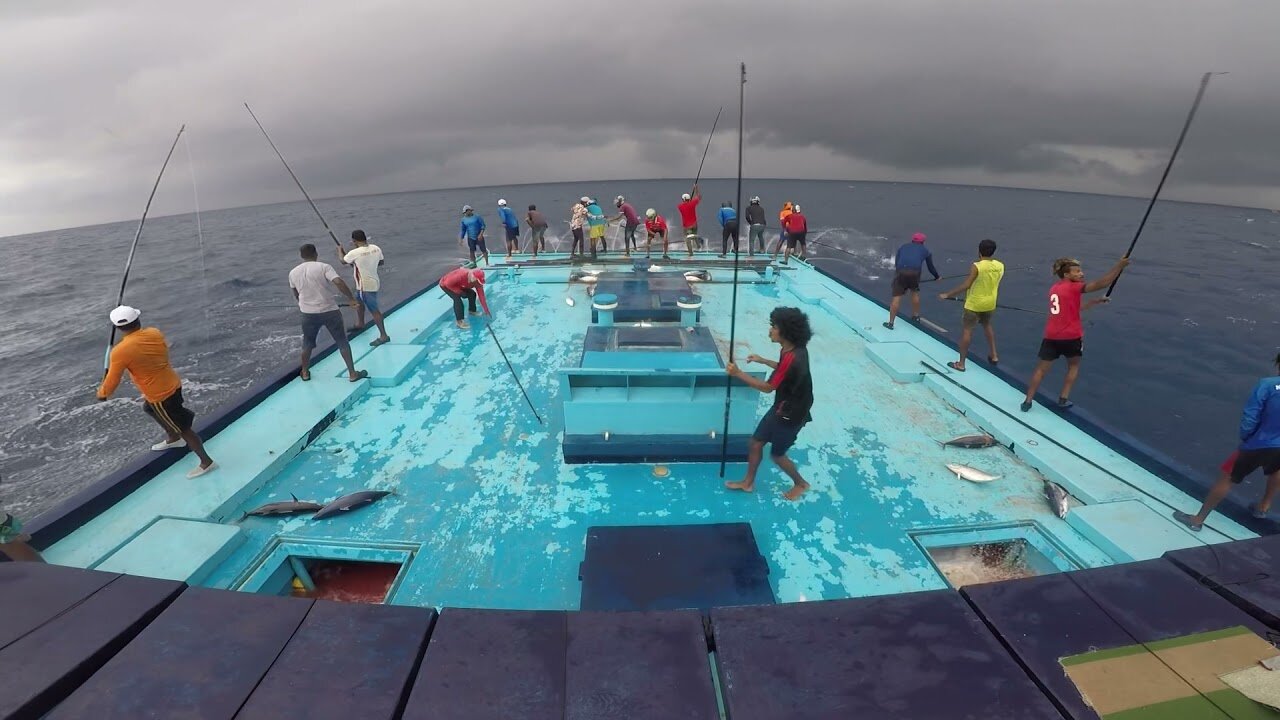Premium Only Content

Unveiling Cruelty in Sustainable Fishing Practices | crueltyfarm
Sustainable fishing aims to maintain fish populations and ecosystems while providing seafood for current and future generations. However, even practices labeled as sustainable can involve significant cruelty, often overlooked by consumers and industry regulators. Sustainable fishing cruelty encompasses various harmful practices that cause unnecessary suffering to marine life.
One aspect of sustainable fishing cruelty is bycatch, where non-target species such as dolphins, turtles, and seabirds get caught in fishing nets and hooks. These animals often suffer injuries or die before being discarded back into the ocean. Even though sustainable fisheries aim to minimize bycatch, it remains a persistent problem, leading to the suffering of countless marine creatures.
Another issue is the method of capture. Practices like longline fishing and trawling, often used in sustainable fisheries, can cause significant harm. Longline fishing involves dragging thousands of baited hooks behind a boat, leading to prolonged suffering for the captured fish and unintended species. Trawling involves dragging heavy nets across the ocean floor, which can devastate habitats and cause severe injuries to the captured animals.
Sustainable fishing cruelty also extends to the handling and processing of fish. Once caught, fish can endure prolonged periods out of water, suffocating slowly. Others are subjected to being gutted or processed while still conscious. These practices raise significant animal welfare concerns, even within the framework of sustainability.
Additionally, the certification and regulation of sustainable fisheries often focus on environmental impact and fish population health, sometimes neglecting the welfare of individual animals. This oversight means that cruelty can persist despite efforts to create more responsible and eco-friendly fishing practices.
Addressing sustainable fishing cruelty requires a broader understanding and commitment to animal welfare alongside environmental sustainability. Improved fishing techniques, better bycatch management, and more humane handling and processing methods are essential steps toward truly ethical and sustainable fishing practices.
Website: https://cruelty.farm
-
 55:28
55:28
Glenn Greenwald
13 hours agoGlenn Reacts to Trump-Zelensky Exchange and Takes Q&A from our Members | SYSTEM UPDATE #415
148K245 -
 4:26:54
4:26:54
Nerdrotic
15 hours ago $41.14 earnedMarvel PANIC MODE! Kathleen Kennedy GONE?! Hollywood DEI Dead | Friday Night Tights 342 Nick Freitas
156K41 -
 1:30:03
1:30:03
Flyover Conservatives
1 day agoZelensky Fail... God Called IT!; From Prison to the White House: Angela Stanton King’s Unbelievable Redemption Story | FOC Show
66.1K6 -
 1:06:14
1:06:14
IsaacButterfield
15 hours ago $2.55 earnedFree Speech Is Dead | Did Trump Go Too Far? | Sexist Job
54.5K21 -
 1:02:59
1:02:59
Sarah Westall
17 hours agoEpstein Files, Dueling Cabal Factions and Gold from Ancient Civilizations w/ Dave Hodges
81.9K34 -
 3:15:08
3:15:08
I_Came_With_Fire_Podcast
15 hours ago“Trump-Zelensky BEATDOWN | Europe BUILDS MUSCLE | NEWSCUM Podcast”
25.1K3 -
 41:25
41:25
CatfishedOnline
16 hours ago $2.34 earned23-Yr-Old Drove 2,650 Miles to Meet Online Girlfriend in Romance Scam
46.2K6 -
 1:56:18
1:56:18
Bare Knuckle Fighting Championship
2 days agoCountdown to BKFC FIGHT NIGHT ALBUQUERQUE & FREE LIVE FIGHTS!
39.9K2 -
 1:58:08
1:58:08
Anthony Rogers
15 hours agoHow To Beat Kids At Video Games
15.6K1 -
 1:46:26
1:46:26
Vigilant News Network
17 hours agoDiddy’s Epstein Moment: Is the Fix Already In? | The Daily Dose
92.7K9